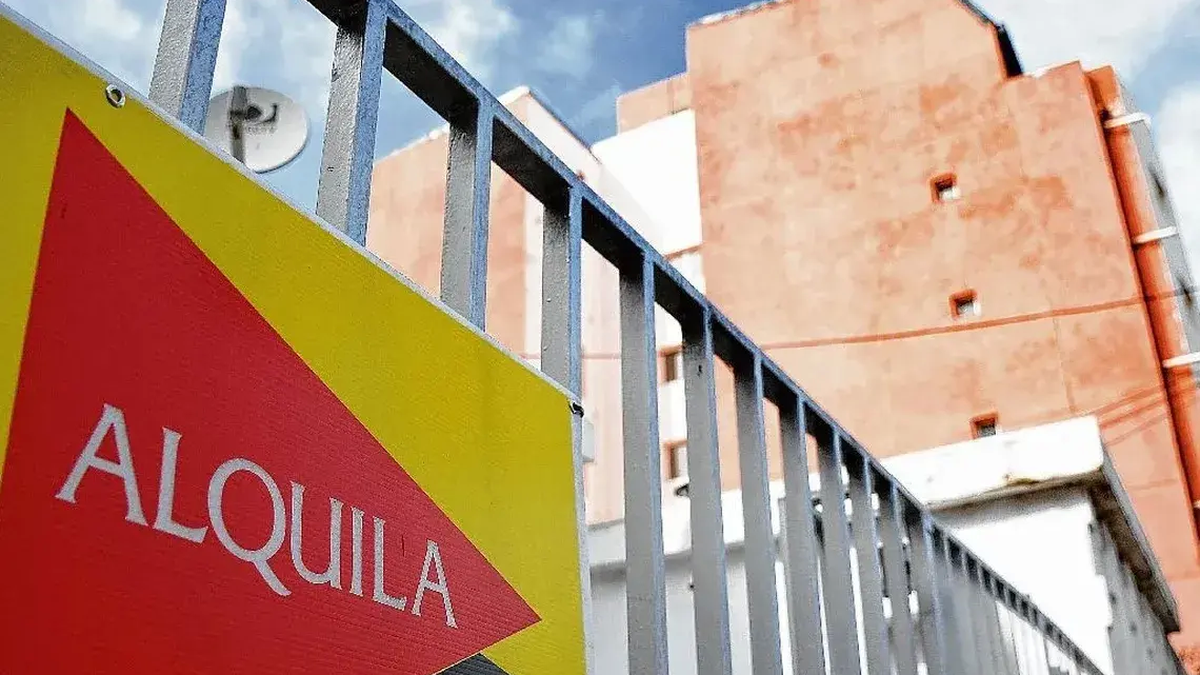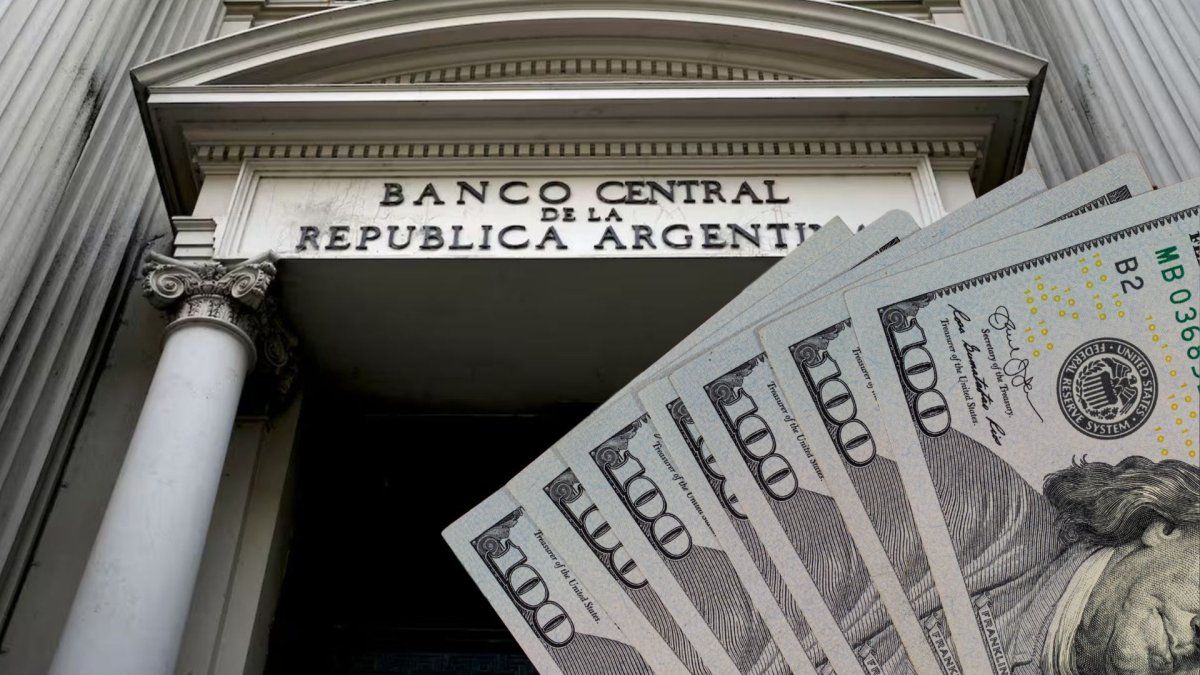“It is unknown what the national government will do, although there is no doubt now that they have demonstrated a very serious inability to control compliance with the rental law. Rents are becoming dollars, there are no registered contracts, and they closed the rental area. rents from the Nation’s Ministry of Habitat,” said Gervasio Muñoz, of the National Federation of Tenants.
From the real estate side, they recognize that the novelty generated uncertainty in the market, which paralyzed operations. This in a context in which the supply of properties for family rental was already scarce. A large part of the owners turned to temporary rentals and an important portion of the prices was dollarized.
- The minimum term of the rental contract becomes 3 years, and it is forbidden to do it for less time. They can be signed for up to 20 years.
- Only one month deposit is paid and it applies for three years. The deposit will have to be returned at the value of the last month of the contract.
- If for any reason (gas outage, or rain due to humidity, etc.) the home cannot be used, the tenant has the right to terminate the contract or suspend payment of the rent until the problem is resolved.
- If there is any expense that the tenant does not have to pay (repairs, debts, etc.), you can deduct it with prior notice from the rental payment.
- Tenants will not have to pay taxes and fees on the property (eg ABL, rents, TSG, Aysa).
- Regarding the expenses, the tenant pays the expenses of ordinary expenses that include the salary of the manager, and cleaning. Extraordinary expenses such as building repairs, or other departments, or reserve funds, are paid by the owners.
- To terminate the contract when the notification to the owner is made with a three month notice or more, after at least six of the contract, the payment of compensation does not correspond.
- Refering to contract renewal either the tenant or the owner can (within the last three months of the rental contract) convene one of the parties to establish the conditions of the next contract. The owner must notify the conditions of the contract and its renewal or not, in 15 days. If there is no response or no agreement, the tenant can end the lease without paying a penalty.
- Prior to the demand for eviction for non-payment of rents, the owner must reliably notify the tenant to pay the amount owed, granting a term that should never be less than ten calendar days from the receipt of the summons. , specifying the place of payment.
- To intervene in a rental contract you have to be a registered real estate broker. Real estate fees or commissions are regulated by each province.
- The tenant offers the owner at least two of the following guarantees: real property title; Bank guarantee; Surety insurance; bail guarantee; or joint guarantor; or personal guarantee of the tenant, which is documented with a salary receipt, income certificate or any other reliable means. The landlord must accept one of the guarantees proposed by the tenant.
- If the owner does not want to collect the rent for any reason, the tenant can send an email requesting that they accept it within 48 hours and otherwise they can record it in court.
- The owner has the obligation to register the contract (as long as it was signed as of 7/1/2020) to the Federal Administration of Public Revenues of the Nation (AFIP). The owner has 15 days to register the contract from the date he signed. The tenant may also do so.
According to reports from Government House, after the meeting between the President and the Minister of Economy, there were several definitions. One of them, which aims to annul the Rental Laweffective from July 2020.
In the framework of the talks between both officials, something became clear: the controversial law that regulates rents must be changed. Although it is not yet known how and what will be the guidelines that will define the new norm to regulate rental and housing contracts throughout the country.
The decision would be defined, something that for several months has been circulating in the corridors of the offices both the executive and legislative branches. Despite several attempts to change and reformulate the current law 27,551, the data is compelling: since its entry into force on July 1, 2020, the increase in rents reached almost three years, increases of 245%.
Galloping inflation, parity payments that do not exceed the increase pattern and almost zero access to mortgage creditwere the variables that further enhanced the explosive panorama of owners and tenants, when defining the rental values in a contract.
In the conclave, of which few details were revealed, it was agreed to cancel the controversial rental law, which sets new rules such as a three-year contract and adjustment for inflation and salary variation, in an inflationary context that equally generated complaints from tenants and owners.
Currently, the rental market has very little offer, with a demand that remains high and with prices through the roof. For example, a rent that in July 2020 paid $50,000 per month, today has a value of $122,500.
As indicated Mariano Garcia Malbranpresident of the Chamber of Real Estate Services Companies (CAMESI), the suspension should detail the procedure to be followed in the contracts in force with the new law and those that are signed from now on with the law already suspended.
The president of Keymex Argentina, lawyer, notary public and real estate broker explained to Ambit that one of the possibilities will be that in the “current contracts, the recently suspended current law continues to apply, since the clauses of the lease contract were negotiated and agreed with said law”.
Meanwhile, García Malbrán estimated that in relation to the contracts that are signed from now on, “As long as a new rule is not issued, they are governed by the old rental law. In this case, a minimum contractual term of two years may be set and the update may be freely negotiated by the parties.”
The prices of apartment rentals in the city of Buenos Aires had increases from 2.6% to 15.4% in Marchaccording to the number of rooms, according to the survey released today by the Center for Economic and Social Studies Scalabrini Ortiz (CESO).
The report noted thathe increases with respect to the values of February were 2.6% in studio apartments, 5.9% for two-room apartments and 15.4% in three-room apartments.
He also indicated that Accumulated increases in the last twelve months were 110.5% for studio apartments in Buenos Aires, 100% for units with two rooms, and 114.3% for those with three rooms, in a period in which inflation rose to 102 ,5%according to the National Institute of Statistics and Censuses (Indec).
The entity specified that the median of studio apartments offered in the City is $80,000Therefore, the Minimum Vital and Mobile Salary, which in March is $69,500, is enough to cover 86.87% of a rent, a relationship similar to that of March of last year.
On the other hand, the median of the offers for two-room apartments is $90,000 and those with three rooms $150,000with a minimum wage coverage of 77.22% and 46.33%, respectively.
Source: Ambito




